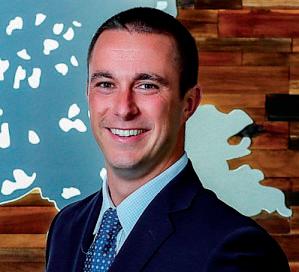








Professionals work hard to achieve both short- and longterm goals. Retirement certainly qualifies as a long-term goal, and many people spend decades building and investing in a nest egg that they hope will help them enjoy their golden years to the fullest extent.
The decision regarding when to retire is affected by a host of variables, so what’s a good time for one individual may not be ideal for another. However, professionals on the cusp of retirement can consider these tips as they try to pick the right time to retire.
Both the United States and Canada feature government-sponsored retirement income programs and it behooves individuals to familiarize themselves with the rules of those programs so they can maximize their benefits. The Canada Pension Plan (CPP) allows individuals to begin receiving full CPP benefits at age 65, but they also can get a permanently reduced amount the moment they turn 60. The CPP also allows people to receive a permanent increase if they wait until turning 70 to receive payment. Similar age-related rules govern the Social Security benefits program in the United States, where individuals can begin claiming benefits at age 62, though those benefits will
be reduced by 25 percent. If individuals wait until they’re 66 or, in some cases, 67, to claim Social Security benefits, they will receive their full benefits. The Social Security Administration notes that those who can wait until age 70 to claim benefits will receive as much as 132 percent of the monthly benefit they would have received at full retirement age.
These distinctions are significant, especially for people who will be looking to government-sponsored programs to provide significant financial support in retirement. Individuals who won’t rely as heavily on such programs may be able to retire earlier.
Carrying debt into retirement can be risky. In general, it’s ideal to pay off all debts, including a mortgage and car payment, before retiring. Doing so can provide more financial flexibility and make it easier to manage unforeseen expenses, such as those incurred due to health problems.


It goes without saying that a sizable nest egg will be a necessity for anyone hoping to live comfortably in retirement. But the tricky part is figuring just how big a nest egg might need to be. In such instances,
individuals can speak with a financial advisor and discuss what their retirement living expenses will be. Conventional wisdom based on the Consumer Price Index suggests individuals will need to replace between 70 and 80 percent of their pre-retirement income after calling it a career. But even that figure is not set in stone, as rising inflation, such as the rapid spike experienced in 2022, can quickly put retirees in financial jeopardy. By estimating the expenses they might have in retirement, individuals can begin to see just how close or far away from retirement they may be. Budget for inflation so any spike in living expenses can be easier to manage.

When individuals retire, they not only walk away from work, but also relinquish thier steady paychecks. For many, retirement can be a potentially risky financial endeavor. Saving for retirement is a great way to mitigate such risk, but unforeseen expenses, such as medical bills, can quickly derail a retirement plan.
Many people have a greater need for medical care as they get older. The Fidelity Investments Retiree Health Care Cost Estimate indicates health care can be one of the biggest expenses a person will take on in retirement. The average 65-year-old couple who retired in 2021 in the United States can expect to spend $300,000 on health care and medical expenses during retirement. The financial resource The Street says other studies suggest it’s wise for retirees to plan to spend between $3,000 and $7,700 per year on health care.
Financial advisors warn that relying exclusively on Medicare to cover health care costs isn’t going to cut it. Benefits under the Medicare program often aren’t enough to pay for all of a retiree’s needs. There may be gaps for chronic treatment of illnesses and specialty treatment for certain conditions. Longterm care services also typically are not covered. It’s important to note that Medicare will cover general doctor’s visits, but it does not cover the cost of deductibles or copays.

Individuals need to be proactive and plan for medical expenses in retirement. After housing, healthcare is the most significant expense for retirees. Health spending accounts and longterm health insurance are two options for people looking for ways to cover their health care costs in retirement.
As of 2022, people can contrib-

ute up to $3,650 for an individual or $7,300 for a family per year into a health savings account. After age 55, an additional $1,000 per year is allowed. Money in an HSA grows tax-free and it can be spent tax-free on qualified medical expenses. Once a person has Medicare, he or she no longer is eligible to contribute to the HSA, but can use money already in the account to pay for qualified medical expenses that are not covered by Medicare. Long-term care insurance is another option, and many people invest in such an account during their 50s or 60s. The earlier an individual enrolls in a program, the lower the premium. According to Personal Capital, most policies will not start until a patient has needed assistance for 90 days and other qualifying guidelines are met. Generally speaking, long-term care insurance also is use-or-lose. If

WearefollowingallCDCrecommendationsforthesafetyofourclients.AttorneyMorellicanmeet withyoubytelephone,videoconferenceorinperson.Helpingpeoplewithcompassion,honesty andintegrityistheessenceofthefirm’smissionandtheguidingprinciplebehindeverythingwedo.
there’s never a need to use the insurance, it will not be refunded. This is a risk that certain people are willing to take.
In addition to these options, people may consider gap insurance programs. When putting together a retirement plan, it can be wise to speak with financial advisors who can customize products based on their expected needs.
What constitutes a perfect retirement is different for everyone. Some people may imagine spending their golden years fishing their days away, while others may aspire to finally embrace their inner globetrotter. Though individuals’ retirement dreams differ, every retiree will need money, which only underscores the importance of a wise and disciplined approach to money management.
Average life expectancies have risen considerably over the last several decades. According to estimates from the United Nations Population Division, the average life expectancy in Canada for both sexes is just under 83 years, while it’s slightly more than 79 in the United States. Those figures are a welcome sign, but they may inspire a little fear among seniors who are concerned that they might outlive their money. No one knows how long they will live, but everyone can embrace a handful of money management strategies to increase the chanc-
es that they won’t feel a financial pinch in retirement.
· Study up on the tax implications of withdrawing from your retirement accounts. Every retirement investment vehicle, whether it’s an IRA or a 401(k), has tax implications. Money withdrawn too early may incur tax penalties, and even money withdrawn long past retirement age could elevate retirees into a new tax bracket that could prove costly. A financial advisor can help retirees determine the tax implications of withdrawing money from their retirement accounts and may even develop a detailed guideline of when withdrawals should be made and how much should be withdrawn in a given year in order to minimize tax liabilities.
· Prioritize your own needs. Though retirees, particularly those with children and grandchildren, may feel an obligation to help their families in difficult financial times, generosity can
be very costly for adults who have stopped working. Retirees may or may not have opportunities to generate new income, and even those who do likely won’t make enough to meet their daily financial needs. Given that reality, retirees must prioritize their own financial needs, including their immediate needs and those they will have for the rest of their lives. Though it might be difficult to turn down loved ones’ requests for financial help, retirees must make sure they can pay their bills and maintain a quality of life that won’t jeopardize their long-term health.
· Examine your housing situation. Equity in a home is a feather in the cap of many retirees. Retirees who own their homes and live in locations with high property taxes might be able to cash in on their equity by selling their homes and downsizing to a smaller home with lower property taxes. If moving is not a consideration, discuss a reverse mort-
gage with a financial advisor. A trusted financial advisor can highlight the advantages and disadvantages of reverse mortgages, which are a great option for some people to improve their financial well-being in retirement.
· Stick to a budget during retirement. The U.S. Department of Health and Human Services reports that roughly 70 percent of individuals who turn 65 will need long-term care in their lifetimes. That’s just one expense retirees must budget for, and it’s more sizable than some people may recognize. In fact, the Fidelity Retiree Health Care Cost Estimate found that the average retired couple age 65 in 2022 will need roughly $315,000 to cover health care expenses in retirement. And health care costs are just one of many expenses retirees can expect to have. Budgeting and avoiding overspending can ensure retirees have the money they need when they need it.


Illnesses and aging can force families to make challenging decisions regarding the health and well-being of people they love. Care facilities, home health aides and other services can help improve quality of life for those people who are no longer well enough — physically or cognitively — to care for themselves. Palliative and hospice care are part of these care offerings.
Palliative care is specialized medical services for individuals living with serious illnesses. It is not designed to cure or treat the condition itself, but it is a way to manage symptoms. It is typically used in conjunction with other forms of medicine that are attempting to treat or cure the disease.
Hospice is similar to palliative care in that it is geared to enhancing quality of life. Hospice care is for people in the last phases of incurable diseases and is intended to ensure they live as fully and comfortably as possible, according to the American Cancer Society. Unlike palliative care, which accompanies traditional medical care, those who accept hospice care typically cease any other care attempting to cure the illness.
The National Institute on Aging says anyone living with a serious illness, such as cancer, dementia, Parkinson’s disease, and heart failure, can appreciate the support palliative care provides. It is helpful at any stage of the illness, and is best started soon after diagnosis.
Hospice care is for those who are in the final stages of their illnesses. Generally, hospice services are reserved for people who are expected to live another
six months or less if their illness continues to run its course.
The good news about palliative care and hospice care is that wishes are completely driven by the patient and his or her family. If the patient is incapable of making medical directives, his or her medical proxy can make changes to care wishes.
Research indicates that many times hospice care is started too late because people think it’s a form of “giving up.” However, anyone in hospice care can resume active care if they or their caregivers choose to do so.

The Mayo Clinic says that palliative and hospice care can im-
prove symptoms such as pain, nausea or vomiting, anxiety, depression, constipation, difficulty breathing, fatigue, and trouble sleeping, among others. Hospice care also can include spiritual and bereavement care. Hospice teams typically follow up with members of the immediate family to offer them counseling or other services.

Patients and their families decide what they want out of these care measures. Palliative care teams are separate from the patient’s medical care team that’s managing their treatment. Hospice care teams coordinate the majority of care for the patient and communicate with the patient’s medical care team.
Caregivers are called on to step in for any number of reasons. Some serve as companions to the elderly, while others assist those with debilitating diseases like cancer. While many caregivers are professionals hired for their services, a good number of caregivers are informal — meaning they are family members or friends assisting loved ones. Even though they are trying to help others, caregivers often must confront a form of stress known as caregiver burnout. The Cleveland Clinic states this stress is marked physical, emotional and mental exhaustion that occurs in caregivers. This burnout may lead to fatigue, anxiety and depression. While there may not be a way to completely eliminate all care-

giving stress, there are some ways to prevent burnout. Utilizing various resources can be a start. Here’s a look at some available caregiver resources.
Find someone you trust with whom you can discuss your feelings, including any frustration you may feel. This can be a neighbor or a coworker with whom you feel comfortable sharing personal details.
Support groups can provide safe spaces to vent with others who are in the same boat. Houses of worship may host support groups, or you can find out about meetings through hospitals or


Fallingoccursbecausethebody’sbalancehasbeendisruptedthrough thesensoryandmotorsystems.BalanceTherapycanhelpminimize dizzinessandimbalancesymptoms.



FYZICAL’streatmentandrecoveryprotocolsutilizecutting-edge equipmentwhichisnotavailableatanyotheroutpatientphysical therapyortreatmentcenterinthearea!

from personal doctors. The National Family Caregiver Support Program was established in 2000 and provides grants to states and territories to fund a range of support that assists family and informal caregivers to care for their loved ones at home for as long as possible. Other groups include Caregiver Action Network and Family Caregiver Alliance.



Respite care services provide temporary breaks for caregivers by enabling the sick, elderly or injured to stay in care facilities for anywhere from a couple of
Caregivers come from all walks of life, even if people may be most likely to associate caregiving with the paid professionals who work as home health aides or in nursing care settings. However, many caregivers are informal, family caregivers who are not paid for their services, but step in to help someone they love. Here’s a look at some of the numbers regarding family caregivers, courtesy of the National Alliance for Caregiving, AARP, Gallup-Healthways Well-Being Index, Respect Care Givers, and the career experts at Zippia.
53 million: the number of Americans who are providing unpaid care to a family member or a friend.
9.5 million: amount by which caregiver numbers increased between 2015 and 2020.
1 in 5: the number of Americans who are caregivers.
22: the percentage of caregivers who are middle-aged.
46: the average age of an employed caregiver.
70: the percentage of working caregivers who suffer work-related difficulties due to their dual roles.
34.7: the number of hours employed caregivers work each week, not including caregiver services.
hours to a few days. Some respite care services will provide shortterm, in-home care as well.

Many therapists are trained to counsel individuals who have particular issues. Some may specialize in grief or even caregiver needs. Utilize their services if speaking with a confidante is not enough.


Caregivers often put the needs of others before their own. But they may need a little help along the way, which is where caregiver resources can come into play.
70.7: the percentage of family caregivers who are women.
88: the percentage of caregivers residing in urban or suburban areas.
69: the percentage of caregivers caring for parents or parents-in-law. Fifty-one percent care for a spouse. or partner.



